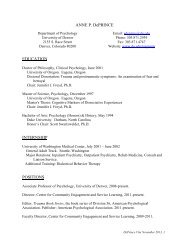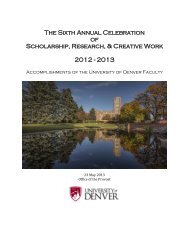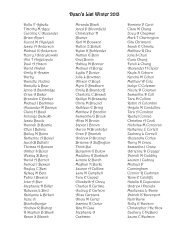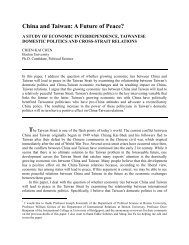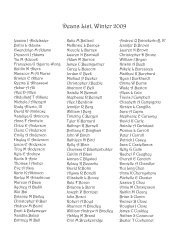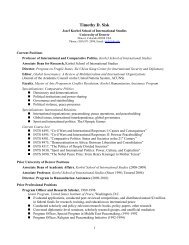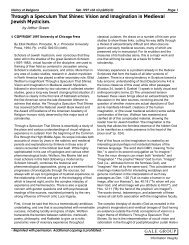The Law of the Living: On Clarice Lispector
The Law of the Living: On Clarice Lispector
The Law of the Living: On Clarice Lispector
You also want an ePaper? Increase the reach of your titles
YUMPU automatically turns print PDFs into web optimized ePapers that Google loves.
<strong>The</strong> room was <strong>the</strong> opposite <strong>of</strong> what I had created in my home,<br />
<strong>the</strong> opposite <strong>of</strong> <strong>the</strong> s<strong>of</strong>t beauty I’d made from my talent <strong>of</strong><br />
arrangement, my talent for living, <strong>the</strong> opposite <strong>of</strong> my serene<br />
irony, <strong>of</strong> my sweet and absent-minded irony: it was a violation<br />
<strong>of</strong> my quotation marks, <strong>the</strong> quotation marks that made me a<br />
citation <strong>of</strong> myself. <strong>The</strong> room was a portrait <strong>of</strong> an empty stomach.<br />
. . . I’d looked at <strong>the</strong> living roach and was dis covering<br />
ins ide it <strong>the</strong> identity <strong>of</strong> my deepest life. Because rising to <strong>the</strong><br />
surface like pus was my truest matter–and with fright and<br />
loathing I was feeling that “I-being” was coming from a source<br />
far prior to <strong>the</strong> human source and, with horror, much greater<br />
than human.<br />
Or later:<br />
Because <strong>the</strong> naked thing is so tedious. So that was why I had a<br />
kind <strong>of</strong> love for tedium and a continual hatred <strong>of</strong> it. Because<br />
tedium is saltless and resembles <strong>the</strong> thing itself. My old constructions<br />
had consisted continually trying to transform <strong>the</strong> atonal to<br />
<strong>the</strong> tonal. But tedium-tedium was <strong>the</strong> only way I could feel <strong>the</strong><br />
atonal.<br />
<strong>The</strong> act <strong>of</strong> writing, for <strong>Lispector</strong>, is not simply a mode <strong>of</strong> expression<br />
or <strong>the</strong> imagination, but ra<strong>the</strong>r an existential tool, a process towards<br />
<strong>the</strong> enigma, <strong>the</strong> unfamiliar, <strong>the</strong> strange substance <strong>of</strong> <strong>the</strong> “thing” itself.<br />
G.H. experiences a source greater than her own human languaged<br />
form and is returned to <strong>the</strong> immemorial root <strong>of</strong> existence.<br />
<strong>Lispector</strong>’s emphasis on preterhuman consciousness, such as vegetal<br />
and animal realities (i.e. a biography <strong>of</strong> flowers in Agua Viva,<br />
conversations with <strong>the</strong> sea in Near to <strong>the</strong> Wild Heart, or <strong>the</strong> metamorphoses<br />
through ancient forms such as cockroaches in <strong>The</strong> Passion<br />
According to G.H.) not only invoke our earliest origins but also infer<br />
primordial strangeness upon language. An explanation as to why her<br />
translators may feel challenged by “weird word choice, awkward syntax,<br />
and lack <strong>of</strong> interest in conventional grammar [which] produces–<br />
<strong>of</strong>ten fragments <strong>of</strong> sentences–that veer towards abstraction without<br />
ever quite reaching it.”¹ However, <strong>the</strong> question <strong>of</strong> <strong>Lispector</strong>’s unique<br />
syntax, her “foreign prose style” may also be a result <strong>of</strong> her attempt to<br />
strip <strong>the</strong> book and its contents <strong>of</strong> all artifice and to expose <strong>the</strong> fictions<br />
1. Moser in his Afterword to <strong>The</strong> Hour <strong>of</strong> <strong>the</strong> Star.<br />
96



